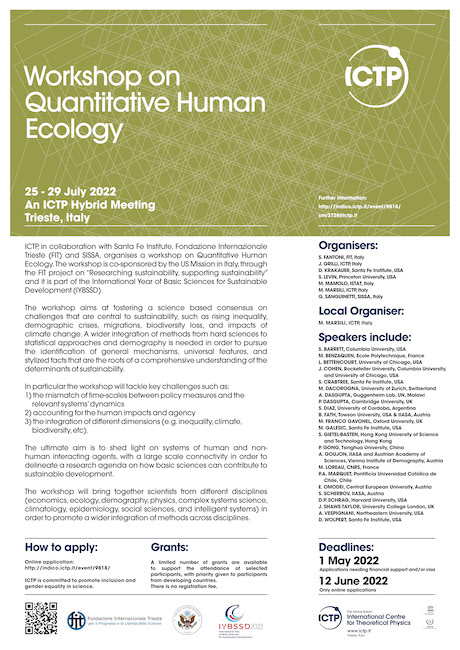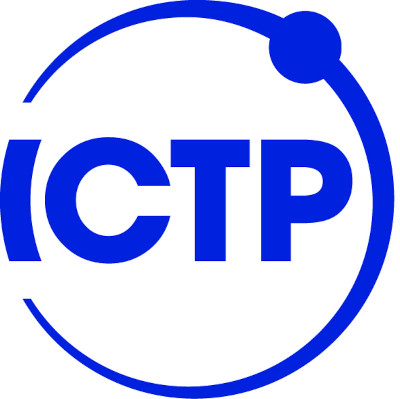
Human Ecology – a multidisciplinary approach
The project includes a scientific workshop and a public engagement in science and technology event and campaign.
The workshop “Human Ecology – a multidisciplinary approach”
It aims at promoting a complexity science approach to sustainability whilst recognizing that the human dimension is central in this endeavour.
We reached a consensus on how human activity has generated global warming thanks to climate research. It is urgent to mobilise the scientific community to build a similar science-based consensus on challenges that are central to sustainability such as the rising inequality, biodiversity loss or demographic crises and migrations, and on their interrelationships.
This workshop focuses on three aspects of the phenomena we are calling “human ecology” that are central to this endeavour:
- Time-scales: Changes in human population and structure hinge on dynamics of a system on time-scales that are typically longer than those of policy measures. An approach to sustainability needs to address the problem of dealing with multiple time scales.
- Interaction and agency: The expansion in the scale of human activity is such that our societies and the environment they interact with are strongly interacting systems. Different challenges cannot be dealt with independently, thus calling for a multi-disciplinary approach. In addition, in such complex systems agents are reflexive and possess autonomy, teleology, and are able to learn and adapt. At the same time, the collective behaviour of a strongly interacting system is non-trivially related to that of its constituents, unlike in representative agent DSGE models that are routinely used to govern our economies. Both these aspects — strong interaction and agency — need to be integrated for an honest approach to human ecologies.
- Stylized facts: the identification of robust statistical features is central to advance our understanding of large scale human phenomena. These stylized facts are the meeting place of empirical scientists, such as demographers and econometricians, with theoreticians who can trace them back to general mechanisms in theoretical models. More and more data is becoming available for quantitative analysis. Yet the identification of what the relevant variables are, from high-dimensional data, as well as the identification of causal relations, is non-trivial.
The workshop will bring together scientists from different disciplines (economics, ecology, demography, complex systems science, computational social science, and intelligent systems), each bringing a different perspective on one of more of these three aspects, in the context of large scale human-based interacting systems. Our goal is to promote a wider integration of methods from the rather limited but well defined hard sciences in statistical approaches and demography, pursuing the identification of general mechanisms, universal features, and stylized facts.
The participation to the seminar of a scientific journalist with a strong scientific background will guarantee the production of written reports as basis to further dissemination actions towards traditional and social media.
A public engagement in STEM event and campaign
Beside this scientific goal, the scientific seminar will be accompanied by a public engagement in STEM event and campaign, to promote the awareness of the importance of this passage and cross-fertilization of knowledge between hard science and social sciences.
A public event (in presence and virtual) will present and discuss main results of the seminar with policy makers and business operators. University students and high schools pupils will be invited.


